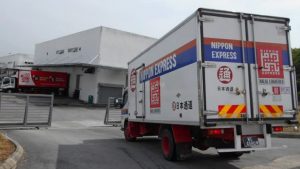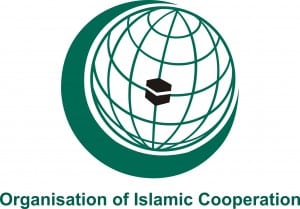Logistics groups Nippon Express and Yusen win approval in Indonesia and Malaysia
TOKYO — Two of Japan’s biggest transport companies, Nippon Express and Yusen Logistics, have taken a step toward growing their business in Southeast Asia by gaining certification that they are shipping goods in compliance with Islamic law.
Most of the Japanese companies that have received halal certification in Southeast Asia have

been food and consumer goods producers, like diaper maker Unicharm. But with a sweeping halal law set to take effect in the region’s most populous country, logistics companies are preparing to ensure they remain part of the region’s supply chains.
Halal, which is Arabic for “permissible,” indicates that products have been prepared in accordance with Islamic law. For food and cosmetics, it means the items were produced without using pork, alcohol or other ingredients prohibited by Islamic law.
Indonesia — where Muslims make up roughly 90% of a population of 260 million people — will require food, cosmetics and pharmaceuticals distributed in the country to have halal certification under a law taking effect next year. Nippon Express and Yusen Logistics expect to face stricter requirements on handling goods as they became subject to law.
Compliance measures will include separating halal and non-halal products when transporting and storing.
The Japanese parent now can bill itself in Indonesia as a halal-approved provider of all logistics services from imports and exports to storage and distribution. The company’s warehouses there have started handling halal food, and Nippon Express seeks to add drugmakers and cosmetics producers as customers.
Nippon Express sees halal certification as an effective tool for wining new shipping orders. The company has obtained similar certification in Malaysia.
Yusen Logistics took a different approach in Malaysia. The Japanese logistics group acquired a local refrigerated distribution business and a warehouse operator last year, bringing them under new Malaysian subsidiary Tasco Yusen Gold Cold.
The two cold-chain companies are both certified by a local body, and one of them holds a roughly 80% share of Malaysia’s distribution of ice cream. Yusen Logistics looks to broaden the list of products the new unit handles.
Nippon Express and Yusen Logistics see halal certification in Southeast Asia helping them win shipping orders from food producers in Australia, Brazil and other countries that export to the region.
These companies also expect expertise gained in Southeast Asia will aid their operations in Japan, which is forecast to receive 1.4 million Muslim tourists in 2020 — twice as many as in 2016.
Muslims make up more than 20% of the world’s population, and the figure keeps rising. The global halal market, including food, pharmaceuticals and cosmetics, is estimated to exceed $1 trillion a year.



